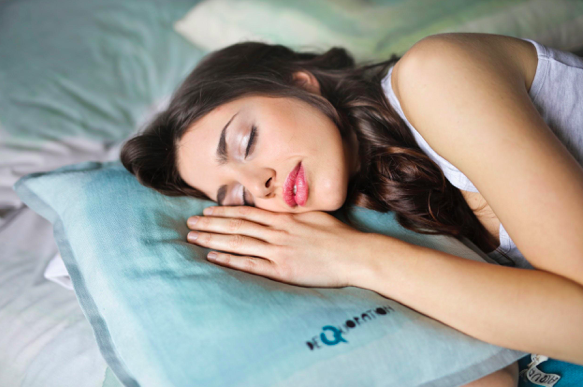Photo by bruce mars on Unsplash
It seems to happen every day. Shortly after lunch, around 2:00, you just feel sleepy. You notice a decrease in concentration and an inability to focus. But what can you do about it?
Have you considered a nap? No, you aren’t in preschool anymore. But there is something about an afternoon nap that replenishes your mood and improves your ability to work. In fact, according to a study by the Edinburgh International Science Festival, naps of 30 minutes or less actually do provide an improved sense of well-being.
Study Results
The study, performed by Professor Richard Wiseman, from the University of Hertfordshire in the United Kingdom, included 1000 participants divided into three groups: those who didn’t take a nap, those who took short naps under 30 minutes, and individuals who took longer naps that were over 30 minutes in length.
While the differences were not extreme, there was a correlation between taking a short nap and happiness. Interestingly, those who took no nap at all were more likely to report being happy than those who took a long nap. Here are the results:
- Short nap under 30 minutes: 66 percent of study participants reported being happy
- No nap at all: 60 percent of individuals said they were happy
- Longer nap over 30 minutes: 56 percent of participants were happy
Wiseman stated, “Previous research has shown that naps of under 30 minutes make you more focused, productive, and creative, and these new findings suggest the tantalising possibility that you can also become happier by just taking a short nap.” He added that “… longer napping is associated with several health risks and again, this is in line with our results.”
Wiseman is referring to these four health risks associated with naps that are longer than 30 minutes:
- Serious health conditions including cardiovascular disease, diabetes, and metabolic syndrome
- Sleep problems
- Poor cognitive functioning
- Lower life expectancy
The study also surveyed participants about their ability to take naps at the office. Only 11 percent of respondents were permitted to nap at work, while 57 percent would take a nap at work if their employer allowed it.
Some companies, such as Google and Huffington Post, not only allow naps but encourage them. Many companies now include napping facilities on site so that when employees reach that afternoon sluggish point, they can take a power nap and feel refreshed.
Depression and Napping
Depression naps have been memorialized through Internet memes. However, they are not a joking matter. One of the symptoms of depression is sleepiness, so it makes sense that patients may feel the urge to sleep during the day. The problem arises when one is sleeping merely to avoid life’s problems and just “get away” for a while. That is a clear sign of a mental illness that should be diagnosed by a physician.
Depression naps are also characterized by being longer than the recommended 30 minutes or less. In fact, most depression patients claim to sleep for several hours during the afternoon. This practice can actually add to one’s feeling of sadness and make you feel groggy and disoriented rather than refreshed.
The 6 Benefits of Napping
Many well-known people have indulged in naps and enjoyed the benefits of a short afternoon break. Benjamin Franklin, Winston Churchill, and Albert Einstein were all known to take naps.
In his book, The Gathering Storm, Winston Churchill defended his daily naps. “Nature has not intended mankind to work from eight in the morning until midnight without that refreshment of blessed oblivion which, even if it only lasts twenty minutes, is sufficient to renew all the vital forces… Don’t think you will be doing less work because you sleep during the day. That’s a foolish notion held by people who have no imaginations. You will be able to accomplish more. You get two days in one — well, at least one and a half,” he wrote.
When done right, napping offers numerous benefits beyond happiness. In the past, people considered naps to be the result of laziness and an unacceptable practice for the successful individual. However, as we have begun to study the causes and effects of sleep, it is becoming clear that naps offer numerous physical and psychological benefits.
Regular short 30-minute naps can:
- Increase alertness, thereby improving reaction time
- Recharge your body and increase your energy level
- Improve your mood
- Boost your immune system
- Sharpen your memory and ability to concentrate
- Reduce stress levels
Napping the Right Way
There is a right and wrong way to do everything, and that includes your afternoon nap. If you sleep too long, you face health issues and may disrupt your nighttime sleep performance, among other problems.
To achieve the best possible health benefits of your nap, be sure to keep it under 30 minutes. A shorter nap is most effective for increasing happiness, productivity, energy, and even creativity. Anything longer than that may result in your body entering a deeper sleep state, which will result in grogginess upon waking. Also, don’t hit snooze. Set an alarm for 20 to 30 minutes and get out of bed when it rings. The best time to nap is between the hours of 1:00 and 3:00 in the afternoon.
Don’t nap on your couch or in a bright setting. Head to your bedroom, if possible, and close the blinds. It’s best to be on a comfortable natural organic mattress in a dark and quiet setting to achieve the most benefits of your nap and will make it easier for you to fall asleep to begin with.
It’s not a good idea to routinely use naps as a replacement for missed nighttime sleep. Your body requires a full night of sleep to properly function. If your daytime naps are interfering with your ability to sleep at night, then forgo your nap.
Interestingly, it is recommended that you drink a cup of coffee prior to lying down for your nap. It will take about 20 minutes for the caffeine to take effect, meaning that you will awake and be ready to go. However, don’t jump right into a new activity upon waking, but give yourself a little time to wake up fully before getting back to work.
Don’t Worry, Be Happy
Naps can truly help you be happy. Some famous people were quite successful due to their ability to take short naps in the afternoon, restoring their energy levels and boosting their mood. Take on your afternoon efficiently with a short nap. Sweet dreams!








